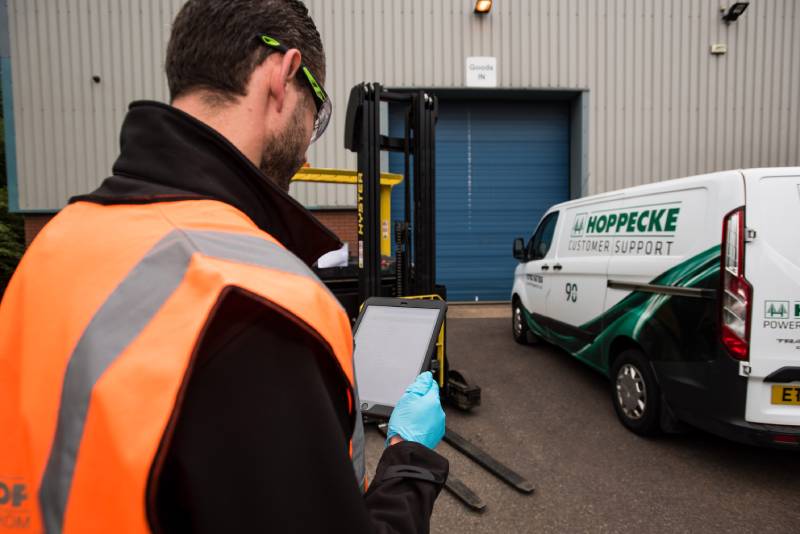
In essential supply chains the COVID-19 pandemic has triggered demand on an unprecedented scale. Not all businesses are ramping up productivity however, and where electric forklifts are likely to be idle for a prolonged period, appropriate care is vital to keep batteries in peak condition.
Many merchants have closed or reduced their operating hours, so in these circumstances, following the correct procedures will prevent issues further down the line that could prove time-consuming and costly to rectify.
Stuart Browne, Operations Director-Sales and Service at Hoppecke UK, says: “Businesses that have had to shut down or curtail their materials handling operation for the foreseeable future have been asking us for advice because, understandably, once they are able to get up and running again, they want to do so as quickly as possible.
“The major risk during a period of inactivity is that batteries left in a discharged or semi-discharged condition will, eventually, suffer from sulphation of the plates, which could reduce capacity or take considerable time and cost to recover.”
To avoid problems and maintain battery condition whilst electric forklifts are standing down, Hoppecke recommends the following steps:
- Make sure that batteries, including any spares that are in use, carefully charged
- Once charged, top up batteries with deionised or distilled water to the correct level
- If a battery is left on a truck and not connected to a charger, disconnect the forklift DC plug from the truck
- Batteries connected to chargers can be left on charge – it is not necessary to switch off chargers once the charge is complete
- Ensure the mains electricity supply to chargers is maintained
- Any truck with a fully charged battery must not be used
- Any auxiliary equipment connected to the battery or truck must be switched off or disconnected – remove the plug to stop the battery from discharging and avoid sulphation
- If a battery is not left on a truck or connected to a charger, it should be reconnected and undergo a refreshing charge every 3 months
- The electrolyte level of all batteries, including those which have had a refresh charge, should be checked after 3 months
Stuart adds: “Paying close attention to the batteries in trucks that are standing down until the COVID-19 crisis passes is really important. If in doubt, ask for advice because getting it wrong could impact business continuity due to avoidable equipment downtime and expense.”









